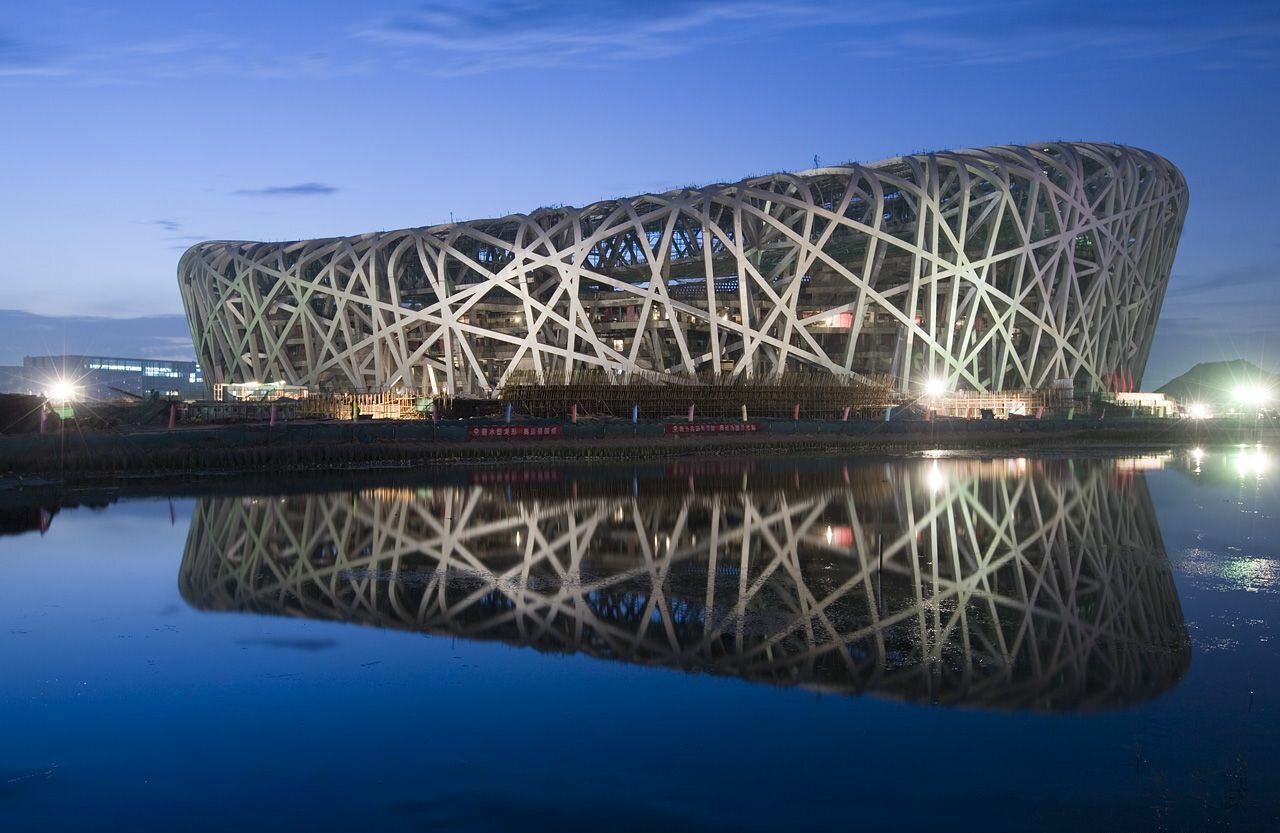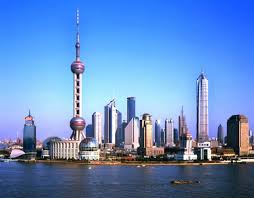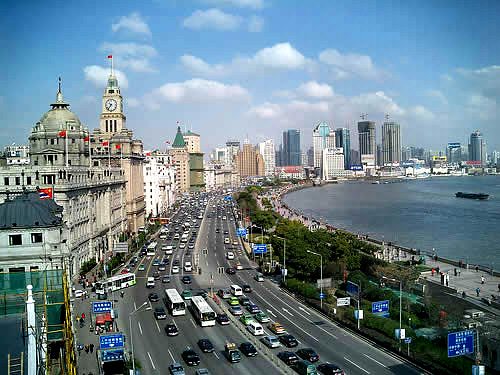USA and China can be strategic & capitalist partners, according to a British columnist of Bloomberg who was educated at Oxford and the London School of Economics
My Comments:
It is interesting how the decline of a superpower and the emergence of a new superpower (actually resurgence or revival of its ancient superpower status) often sparks off headline-grabbing arguments and conflicts, but I agree with British columnist Clive Crook that America and China are actually similar in capitalistic economic ethos and have so much interlinked strategic interests.

This British analyst is also correct in reminding America that his own home country, Britain, was once also the biggest world superpower which had difficulty adjusting and coming to terms with its declining status vis-a-vis the then rising new superpower USA over a century ago.
I'm sharing below this wise and optimistic column by Clive Crook, which essentially also points to the reality that our world can and should be a win-win place, no need to be a zero-sum game scenario. Let us build a more progressive, positive, harmonious and dynamic world!
It is good to witness the rise of the 21st century world which seems to be becoming multi-polar, diverse, and with no longer any one superpower dominating or bossing the rest of the world, but a brave new world where all nations big or small shall be equal and respected.
(Image below sourced from studentsforlife.org)

Read this column below and share your comments at the end of this blog post?
Note: Clive Crook was born in Yorkshire, educated at Bolton School; Magdalen College, Oxford (where he was a foundation scholar); and the London School of Economics.
After leaving university he was an official in H.M. Treasury and the Government Economic Service. Crook worked for 20 years at 'The Economist,' variously serving as economics correspondent, Washington correspondent, economics editor and deputy editor. In addition to writing for Bloomberg View, Crook is a senior editor of 'The Atlantic' and a contributing editor of 'National Journal.'

Illustration by Niv Bavarsky
Why China and the U.S. Can Be Capitalist Comrades
China's growth has slowed a bit this year, but the surge in vivid predictions about the country’s future continues to amaze observers. This observer, at any rate.
Experts foresee imminent financial collapse or an uninterrupted rise to economic preeminence. The ruling Communist Party will either loosen or tighten its grip. The consequences for the U.S. and the rest of the world will be either benign or disastrous.
Perhaps bewildered by my first visit to Beijing and Shanghai in more than 10 years, not to mention the jet lag, I find these contending inevitabilities unconvincing. Little in life is certain, and that probably goes double for China.
Nobody could have predicted the country’s economic performance since Deng Xiaoping began his economic reforms in 1979: 30 years of growth at 10 percent a year. In the past 10 years alone, gross domestic product per person has increased two-and-a-half times, in inflation-adjusted terms. Consumption has grown more slowly than output, admittedly, because investment has increased its share of the total, but still. It’s astonishing, and it most likely understates the pace of economic progress in places like Beijing and Shanghai.
Knowing the numbers and understanding that these new world cities aren’t representative of the whole country doesn’t prepare you for their vibrancy and prosperity. And what I recalled from my previous visits didn’t prepare me for the eagerness to engage and the openness of the businesspeople and scholars I’ve been meeting.




(Image below from forbes.com)


In judging the likelihood that China and the U.S. will come to blows, it’s important to remember that they now share a common religion: capitalism.
A great deal is made of the supposedly fundamental differences between China’s economic model and the one that prevails in the West. It flatters everybody to think in these terms. You can’t have the superior model if everybody’s model is essentially the same.
China talks about “socialism with Chinese characteristics,” Western analysts about “state capitalism.” Market-based economies do come in different versions, of course. American capitalism is different from French capitalism, which is different from South Korean capitalism, which is different from Singaporean capitalism, the version that first impressed Deng. But they are family. China is another sibling. You just have to discount the age difference.
Various branches of government still play a big role in the Chinese economy, to be sure. State-owned enterprises still account for between 25 and 30 percent of industrial output, down from more than 80 percent in the late 1970s. Some of these SOEs are huge and celebrated as national champions, an idea not unheard of in Europe. But they continue to dwindle in aggregate, and they are increasingly exposed in varying degrees to market forces.
This isn’t a blend of socialism and communism kitted out with optional extras. It isn’t market-Leninism. Thirty years on, China is a capitalist country.
Therefore, the contest between China and the U.S., if it happens, won’t be about which of two bitterly opposed ideologies survives. Both might wish to deny it, but they find themselves on the same side in that particular struggle.
(Image below sourced from washingtonpost.com, it shows USA President Barack Obama with outgoing China President Hu Jintao)

In matters of war and peace, interests usually matter more than values. China is acutely sensitive to the risks posed by its extended land borders. It sees its modern history, with good reason, as a series of depredations by hostile neighbors. As it gets richer it will do what most rising powers have done -- attend to its security by increasing its military capabilities. The U.S. understands this and sees its own interests at risk.
It’s already happening. China’s gathering strength and recent new assertiveness in foreign policy are stirring concern in the region and beyond. When the Obama administration announced its “pivot to Asia,” it was affirming its commitment to the prevailing regional order, the rise of China notwithstanding.
The danger is plain, especially because the U.S. has sensitivities of its own. Even as its economy resumes a healthy rate of expansion, America will have to cope with relative decline. The U.S. will grow, but China will grow faster. By mere weight of population its economy will soon be bigger -- and eventually, much bigger. Nothing in America’s history has prepared it for this. Take it from a Brit: It may take some getting used to.
Yet the great capitalist convergence, if it continues, will in crucial respects push the other way and promote peace. Cross- border capitalism -- globalization, if you prefer -- creates mutual dependence. Countries bound together by flows of goods, services, capital and people, as China and the U.S. increasingly are, gradually come to see that they succeed or fail together.
The dangerous fallacy that trade is a zero-sum game is tenacious, but as economic interdependence increases, the mutual benefits become more obvious. Also, with rising prosperity, people have more to lose. Fear of conflict -- not war by remote- control, but one that would put everything at risk -- will surely rise.
Interaction at every level should be the order of the day. Familiarity will breed friendship, I’m convinced, as Chinese and U.S. attitudes are often comically similar. Prickliness over sovereignty and an exaggerated belief in national exceptionalism are the most salient examples. Neither country willingly cedes control to outsiders. Neither can abide being bossed around. Both are entirely convinced of the rightness of their ideas.
If America wants to understand China, it could start by better understanding itself -- and vice versa. Then, if China can moderate its sense of grievance over past injuries, and the U.S. can curb its desire to tell everybody else how to live, a genuine partnership between the two superpowers is achievable.
(Clive Crook is a Bloomberg View columnist. The opinions expressed are his own.)
(Image below of China's next leader Xi Jinping and USA Vice-President Joe Biden, souced from wreporter.com)

Experts foresee imminent financial collapse or an uninterrupted rise to economic preeminence. The ruling Communist Party will either loosen or tighten its grip. The consequences for the U.S. and the rest of the world will be either benign or disastrous.
Nobody could have predicted the country’s economic performance since Deng Xiaoping began his economic reforms in 1979: 30 years of growth at 10 percent a year. In the past 10 years alone, gross domestic product per person has increased two-and-a-half times, in inflation-adjusted terms. Consumption has grown more slowly than output, admittedly, because investment has increased its share of the total, but still. It’s astonishing, and it most likely understates the pace of economic progress in places like Beijing and Shanghai.
Knowing the numbers and understanding that these new world cities aren’t representative of the whole country doesn’t prepare you for their vibrancy and prosperity. And what I recalled from my previous visits didn’t prepare me for the eagerness to engage and the openness of the businesspeople and scholars I’ve been meeting.




(Image below from forbes.com)

Optimistic Outlook
The same questions preoccupy Chinese and American thinkers alike: How long, if at all, can growth at anything like this rate continue, and, if it does, will it drive China and the U.S. toward confrontation? With all due timidity, and despite some dangers in the economic outlook, I lean to optimism on the economic question. I will go into the reasons next week. On the geopolitics, for reasons I will go into now, I lean to optimism as well.In judging the likelihood that China and the U.S. will come to blows, it’s important to remember that they now share a common religion: capitalism.
A great deal is made of the supposedly fundamental differences between China’s economic model and the one that prevails in the West. It flatters everybody to think in these terms. You can’t have the superior model if everybody’s model is essentially the same.
China talks about “socialism with Chinese characteristics,” Western analysts about “state capitalism.” Market-based economies do come in different versions, of course. American capitalism is different from French capitalism, which is different from South Korean capitalism, which is different from Singaporean capitalism, the version that first impressed Deng. But they are family. China is another sibling. You just have to discount the age difference.
Various branches of government still play a big role in the Chinese economy, to be sure. State-owned enterprises still account for between 25 and 30 percent of industrial output, down from more than 80 percent in the late 1970s. Some of these SOEs are huge and celebrated as national champions, an idea not unheard of in Europe. But they continue to dwindle in aggregate, and they are increasingly exposed in varying degrees to market forces.
This isn’t a blend of socialism and communism kitted out with optional extras. It isn’t market-Leninism. Thirty years on, China is a capitalist country.
Therefore, the contest between China and the U.S., if it happens, won’t be about which of two bitterly opposed ideologies survives. Both might wish to deny it, but they find themselves on the same side in that particular struggle.
(Image below sourced from washingtonpost.com, it shows USA President Barack Obama with outgoing China President Hu Jintao)

Greater Transparency
In the political as opposed to economic realm, of course, that isn’t true. Chinese politics is no longer totalitarian, but it’s authoritarian. Dissent of certain kinds is repressed, though critics who respect the bounds get a hearing. The Chinese want greater transparency, accountability and a crackdown on corruption, but they aren’t clamoring for the vote. America’s contempt for this system, and China’s resentment of U.S. contempt, give them something to fight over if they choose to.In matters of war and peace, interests usually matter more than values. China is acutely sensitive to the risks posed by its extended land borders. It sees its modern history, with good reason, as a series of depredations by hostile neighbors. As it gets richer it will do what most rising powers have done -- attend to its security by increasing its military capabilities. The U.S. understands this and sees its own interests at risk.
It’s already happening. China’s gathering strength and recent new assertiveness in foreign policy are stirring concern in the region and beyond. When the Obama administration announced its “pivot to Asia,” it was affirming its commitment to the prevailing regional order, the rise of China notwithstanding.
The danger is plain, especially because the U.S. has sensitivities of its own. Even as its economy resumes a healthy rate of expansion, America will have to cope with relative decline. The U.S. will grow, but China will grow faster. By mere weight of population its economy will soon be bigger -- and eventually, much bigger. Nothing in America’s history has prepared it for this. Take it from a Brit: It may take some getting used to.
Yet the great capitalist convergence, if it continues, will in crucial respects push the other way and promote peace. Cross- border capitalism -- globalization, if you prefer -- creates mutual dependence. Countries bound together by flows of goods, services, capital and people, as China and the U.S. increasingly are, gradually come to see that they succeed or fail together.
The dangerous fallacy that trade is a zero-sum game is tenacious, but as economic interdependence increases, the mutual benefits become more obvious. Also, with rising prosperity, people have more to lose. Fear of conflict -- not war by remote- control, but one that would put everything at risk -- will surely rise.
Interaction at every level should be the order of the day. Familiarity will breed friendship, I’m convinced, as Chinese and U.S. attitudes are often comically similar. Prickliness over sovereignty and an exaggerated belief in national exceptionalism are the most salient examples. Neither country willingly cedes control to outsiders. Neither can abide being bossed around. Both are entirely convinced of the rightness of their ideas.
If America wants to understand China, it could start by better understanding itself -- and vice versa. Then, if China can moderate its sense of grievance over past injuries, and the U.S. can curb its desire to tell everybody else how to live, a genuine partnership between the two superpowers is achievable.
(Clive Crook is a Bloomberg View columnist. The opinions expressed are his own.)
(Image below of China's next leader Xi Jinping and USA Vice-President Joe Biden, souced from wreporter.com)


No comments:
Post a Comment